Last Updated on March 30, 2023
Choosing the right pillow can be almost as difficult as choosing the right mattress.
It used to be that we had 6 options to choose from – a choice of down or polyester, in soft, medium, or firm.
Times, of course, have changed.
Now we have what seems like an endless number of pillows to choose from. No seriously, click on the link and check it out – over 50,000 options on Amazon alone!
If you took the time to analyze each and every pillow available, it might take you months or years to decide.
But choosing a suitable pillow shouldn’t be that hard to arduous. Avoid the following 10 mistakes that people commonly make when purchasing a new pillow, and you should be satisfied with whichever pillow you choose.
The wrong pillow for your sleeping position
A thick and lofty pillow or a flat and soft one might sound attractive – but consider if it’s the right pillow for your sleeping position.
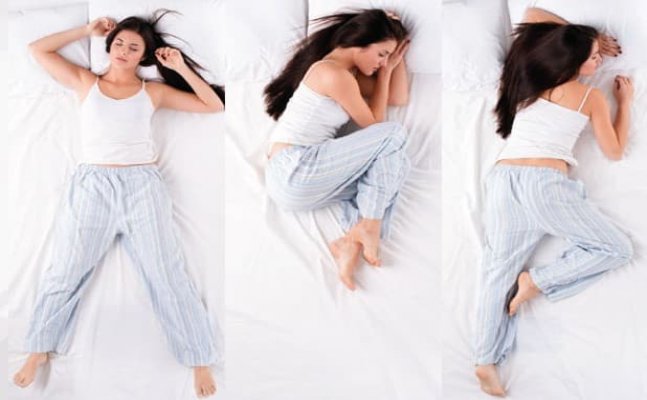
Here is a good general guideline for which pillow will work best:
- Stomach sleepers – Flat or soft density
- Back sleepers – Medium density
- Side sleepers – Firm density
Not considering your mattress
In conjunction with that, take into account what type of mattress you have – especially if you’re a side sleeper. If you have a soft mattress, you won’t need as firm a pillow.
If your mattress is super firm, you’ll need a lofty or firm pillow to match.

When your mattress is soft, your body sinks into it more. Consequently, the distance between your head and the mattress is less. It takes less support to keep your spine aligned.
If your mattress is firm, you don’t sink as much, which means the distance from your head to the mattress is more.
Choosing the pillow that feels just right
This is a mistake you would make in a store, but a mistake nonetheless.
Pillows are not “pre-shrunk”, and they will get a bit smaller as they break-in. The pillow you see today, will not be the same pillow a month from now.
If a pillow feels just right at the moment, it will be a bit too soft next month. Look for a pillow that is just a bit too firm for your taste, that way it will be just right when you break it in.
Pillows that are too firm for the sake of being firm
People always tell you, of course, to find a pillow that offers support. This gives off the mistaken impression that a firm pillow is best.
A firm pillow is good, but only if you need a firm pillow.
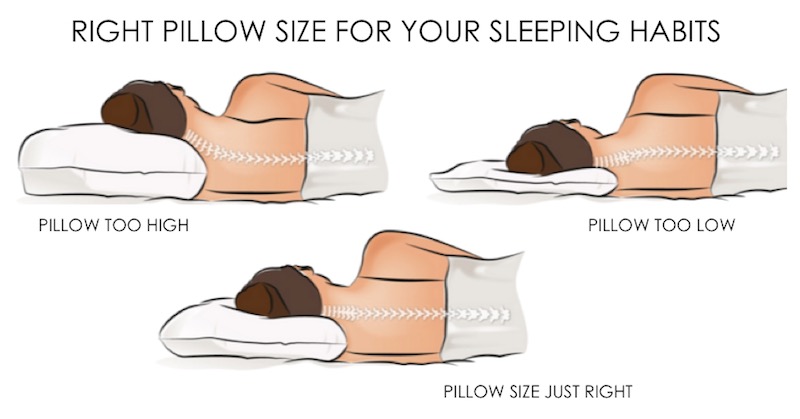
If you’re a side sleeper, if you have a super firm mattress, if you have a large head, etc., all of these are proper reasons to choose a firm pillow.
Otherwise, don’t feel beholden to firm density pillows just because they offer “more” support.
Pillows that look cool or high-tech
Pillows used to be standard stuff; a fabric outer cover, with a filling material.
The last 15 years or so have seen an influx of “innovative” pillow designs and materials. Pillows these days might come with an outer gel layer, or include a combination of multiple fill materials.
Or maybe even be infused with weird ingredients like charcoal, etc.
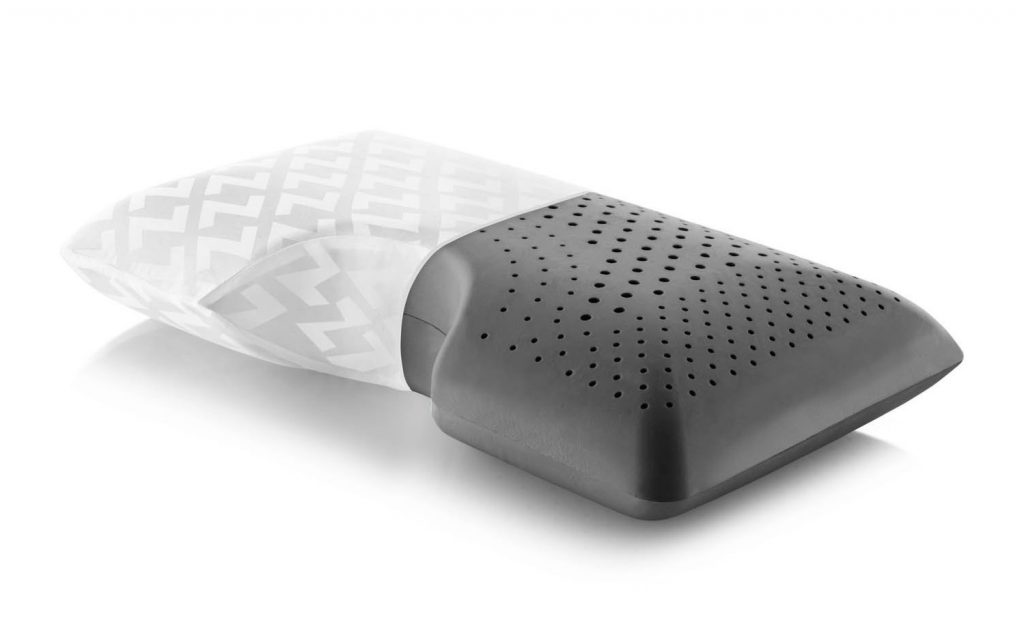
Resist the temptation to fall for these gimmicks. What works today is what worked 20 or 25 years ago. The added layers and substances that manufacturers infuse in their pillows are mostly just fluff.
Buyers love gimmicks, and pillow makers love to sell pillows. As a result, we have a bunch of gimmicky pillows on the market.
Not purchasing a pillow protector
Purchasing the right pillow for you is important, but so is taking care of it.
A pillow protector is one of the best ways to do that. They are very affordable and protect the pillow from stains and spills.
They also prevent dust mites and other bugs from getting in and damaging the fill inside.
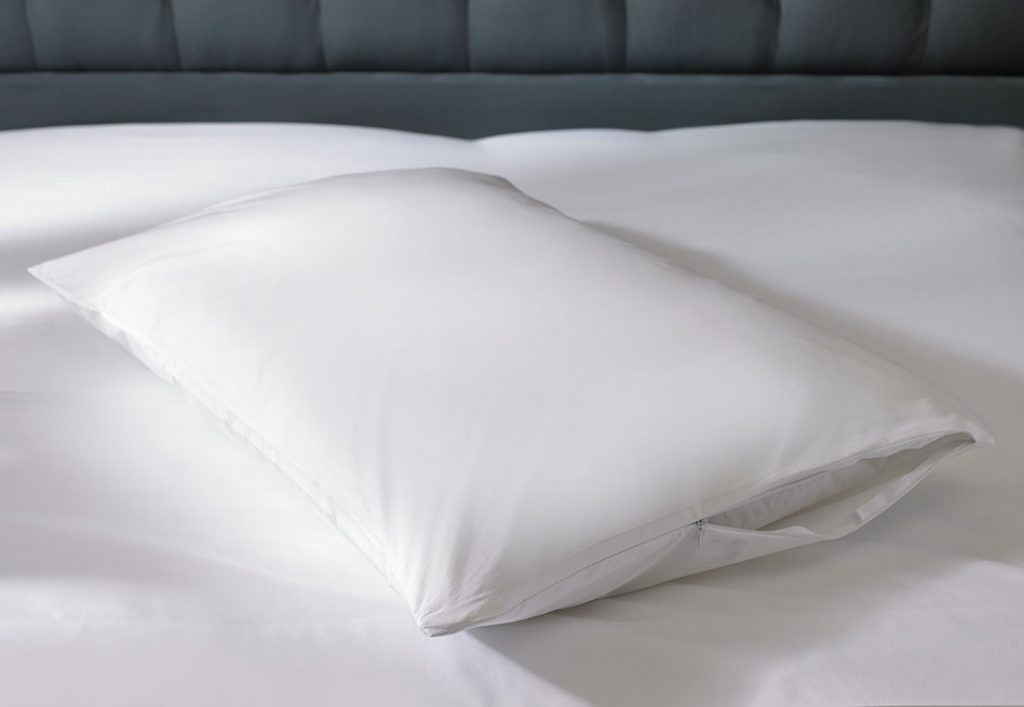
Most wear and tear on a pillow comes from two key aspects:
- The sweat that seeps into the pillow while you sleep
- Washing the pillow
Both of which are alleviated by using a pillow protector. By encasing your pillow in the protector, it keeps it clean, and moisture-free.
A clean pillow is one that does not have to be washed as often!
Bargain twin pillow packs
Department stores and thrift shops love to place bins of cheap bargain pillows near the entrance, or in other high-traffic areas of the store.
These pillows will usually come as a pair and will be packaged in a thin nylon bag. Specifically, something like this:
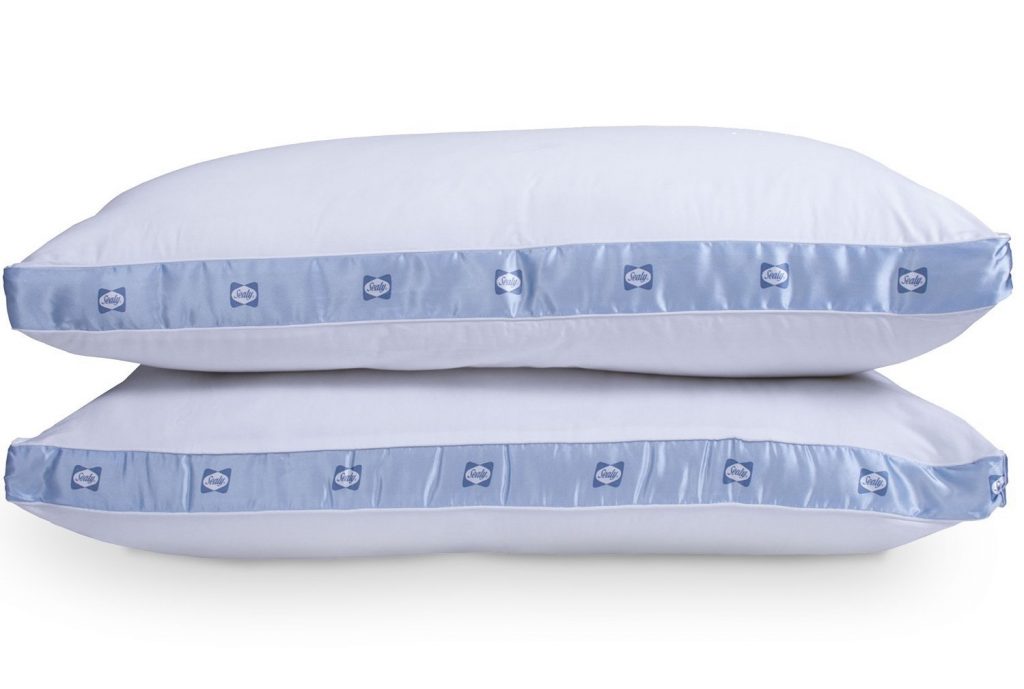
Avoid the temptation to purchase these pillows.
They usually sell for quite a bargain – like $19.99 – but you definitely get what you pay for. These pillows are super flimsy, offer little to no support, and aren’t very durable.
These are the kinds of pillows, for instance, that you relegate to guests or pets.
They’re just flat-out bad pillows!
Focusing on insignificant features
Pillow makers love to put insignificant pillow specs on the outside of the packaging. And, of course, we love to fall for them. But some of these so-called features offer you little in terms of benefits.
These insignificant features might include:
A high thread count cover
The most meaningless of features. Most “luxury” pillows will tout their high thread count outer cover – which is a completely useless feature. Your pillow will most likely be inside of a pillowcase.
Your face will never touch the cover of the pillow itself. So why would you care about the thread count of a pillow?
Fill power
If down is being used in a pillow, then the fill power will have to be mentioned. But don’t be impressed or coaxed by a pillow featuring down of higher fill power.
Fill power, in essence, measures the ability of down feathers to trap warmth.
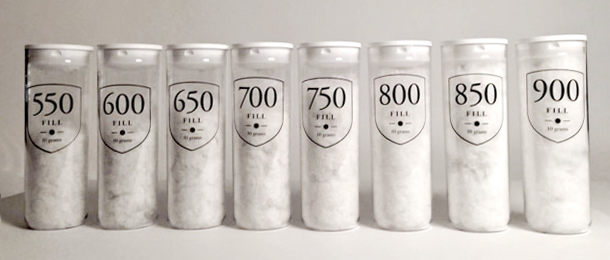
So, the higher the fill power, the more heat it will hold. For example, 10 ounces of 700 fill power down, will hold on to more heat than 10 ounces of 500 fill power.
But, you don’t use a pillow for warmth, you use it for comfort and support. Ignore fill power ratings when it comes to a down pillow – just focus on the support density (soft, medium, firm).
Designs or decorations
Some pillows will feature piping, cording, logos, designs, or decorations.
Much like with thread count, this is another meaningless feature. With your pillow inside of a pillowcase, you’ll never see them.
instead, focus on the material and how it’s made, like double-needle, barrier weave, etc.
Designer brand pillows
Avoid buying designer or name-brand pillows.
Pillows from designers like Calvin Klein, Tommy Hilfiger, etc., should be avoided for two reasons:
1.) They are usually poorly made. Designer or name brand pillows are usually the pillows you see being sold as a pair in department stores.
Even when the pillow is well made, consider that…
2.) Designers don’t actually make the pillows themselves. Pillow manufacturers make these pillows for them, and slap on their logo/tag.
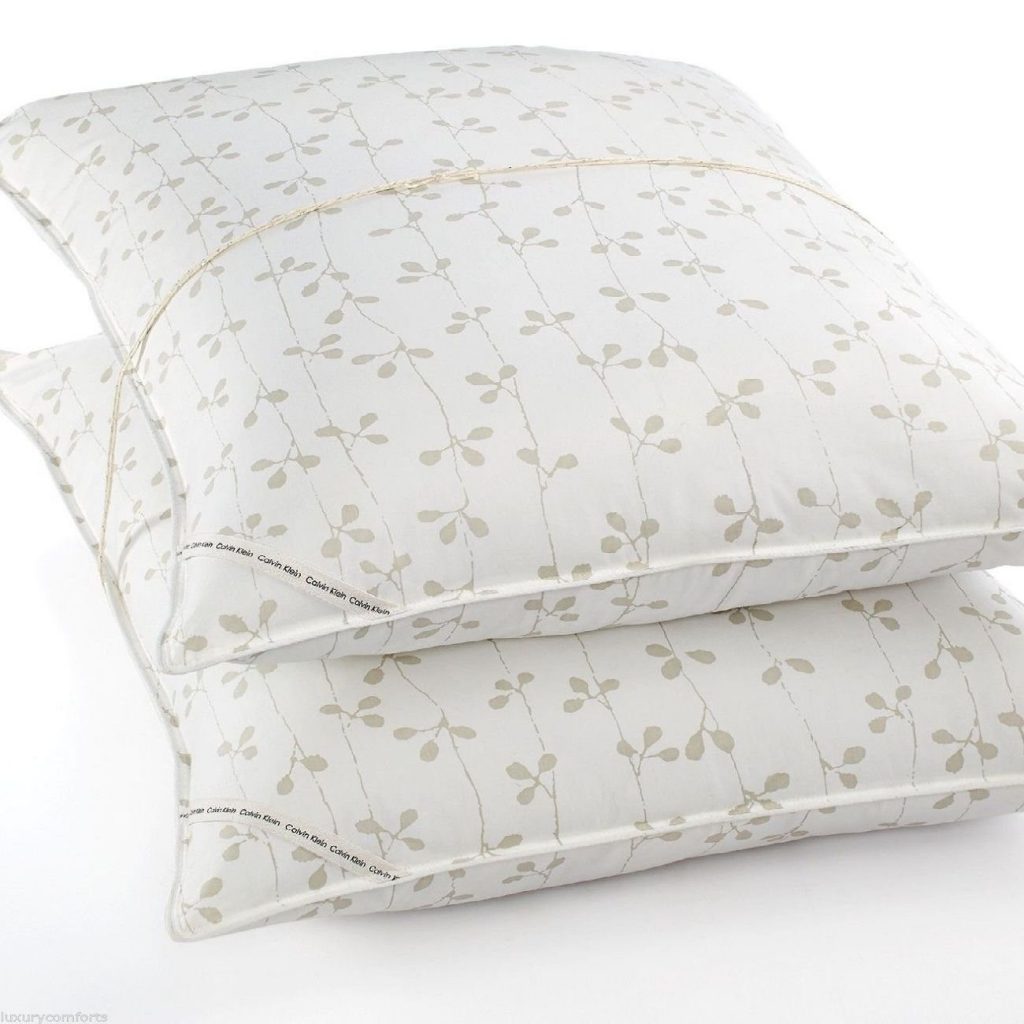
If you check the long white tag on the pillow, it will mention the actual manufacturer, like WestPoint, Springs Global, Downlite, Sleeptex, National Sleep Products, etc.
In most cases, you can buy the same pillow directly from the manufacturer on Amazon.
For instance, a $100 pillow from a name brand will most likely cost you $30-50 from the manufacturer direct.
The wrong construction
You don’t necessarily need to spend $100’s on a firm down pillow if you want a firm pillow.
There are pillows that offer the support of a firm pillow, with the softness of down, at a fraction of the price. These are usually called “down surround” or “chamber” pillows.
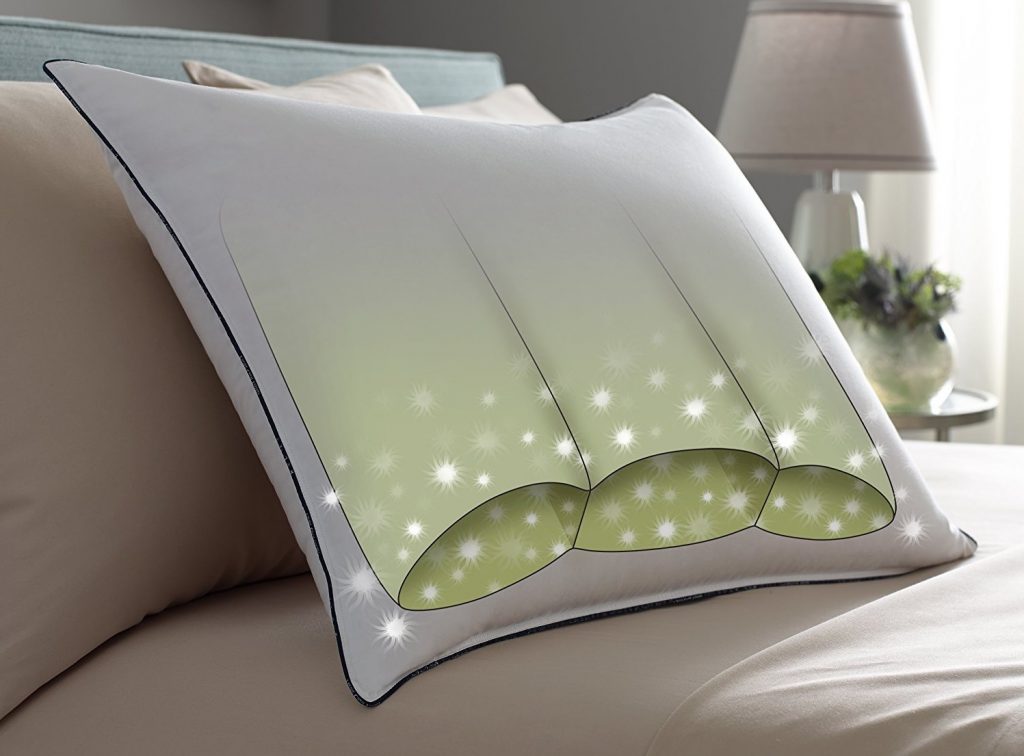
These kinds of pillows essentially have 3 chambers inside.
The inner chamber will be filled with feathers – which offer superior support versus down. The outer chambers, which you actually feel, are filled with down.
Since feathers cost less than goose down, the resulting pillow is much more affordable!
Final thoughts
These are just 10 of the most common mistakes people make when purchasing a pillow.
The best feature of any pillow, of course, is the return policy. The only way to specifically know for sure if you’ll like a pillow is to actually sleep on it.
A pillow might look good inside the store, or on Amazon – but you won’t know until you try it. Having the option to send it back is the best pillow feature to look for.
